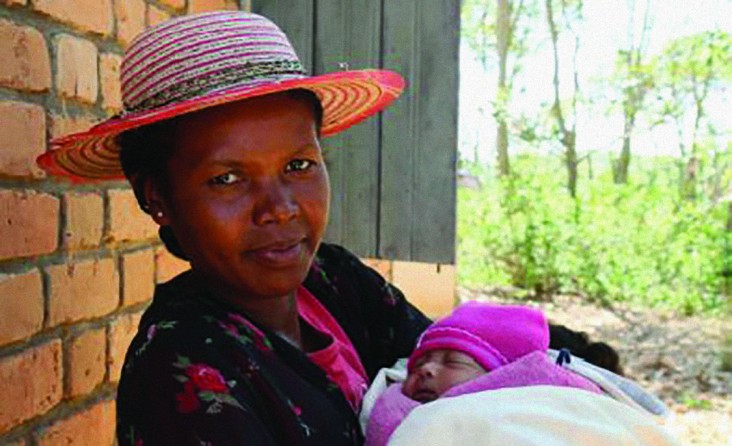- Work With USAID
- How to Work with USAID
- Organizations That Work With USAID
- Find a Funding Opportunity
- Resources for Partners
- Careers
- Get Involved
Speeches Shim

Background
In Madagascar, 83 percent of households are food insecure or vulnerable to food insecurity. More than 90 percent of the population lives on less than $2 per day, and over 50 percent of children are stunted.
Through its experience in Madagascar, ADRA identified four underlying causes for food insecurity in the country: 1) poor health and nutrition practices; 2) low levels of productivity; 3) lack of access to food; and 4) vulnerability to natural disasters. These align with the four pillars of food security: utilization, availability, access, and stability.
The response to the problem—ASOTRY, meaning “harvest” in Malagasy—is a five-year innovative food security program designed to reduce food insecurity and vulnerability in 11 districts across Madagascar. ASOTRY aimed to substantially improve malnutrition, agricultural productivity, and household and commu-nity resilience through the following components:
1) Improved Health and Nutrition: ADRA focused on improving nutrition for women of reproductive age and children under two, with an emphasis on malnutri-tion prevention through behavior change, knowledge, and training. ADRA also provides opportunities for income generation and agricultural production, which increases access to financial resources as well as diverse, quality foods.
2) Increased Access to Food for Vulnerable Households: Increased production is key to food availability. To achieve this, ASOTRY increased knowledge, improved technologies and techniques, and promoted crop diversification through an innovative farmer training model. Farmer Business Associations (FBAs) and private sector partnerships helped access more markets and increase food profitability. Lastly, Village Savings and Loan (VSL) groups as well as other income generating activities enabled households to access quality food on the market.
3) Improved Disaster Mitigation: ASOTRY helped build community resilience by investing in infrastructure such as roads, irrigation, and WASH facilities; sustaining natural resources through rehabilitation and reforestation; and increasing community capacity to prevent, mitigate, and respond to disasters through early warning systems.
Faith-Based and Community Initiatives
Throughout Madagascar, religious and community leaders are respected and trusted in their communities. ASOTRY collaborates with these leaders to share announcements with their communities related to maternal and child health; proper hygiene; the benefits of constructing covered latrines; and promoting local contributions to building infrastructure, such as storage facilities. Additionally, faith and community leaders are often “Village Agents,” which means they are responsible for training new VSL groups or promoting farmer field schools and FBAs. ADRA has learned through ASOTRY that influential faith and community leaders have a shared interest in health and wellbeing, which enables them to help support positive behavior change and build understanding among communities.
Results
In the project’s first component, ADRA trained 80,335 people in child health and nutrition, involved 18,220 children under two in growth monitoring and promotion, and provided Care Group home visits to 25,838 households with pregnant and lactating women or children under five.
In the second component, ASOTRY has helped 15,677 farmers improve technologies or management practices, assisted in developing 6,444 hectares under improved technologies or management, and facilitated access to service and input providers for 8,419 farmers. In the third component, ASOTRY improved the infra-structure of 55 communities, improved or constructed 102.1 km of roads, enabled irrigation and drainage for 2,174 hectares of land, established 130 tree nurseries, and led 4,551 people to use climate information or implement risk reduction actions to improve resilience to climate shocks or transitions.

Comment
Make a general inquiry or suggest an improvement.